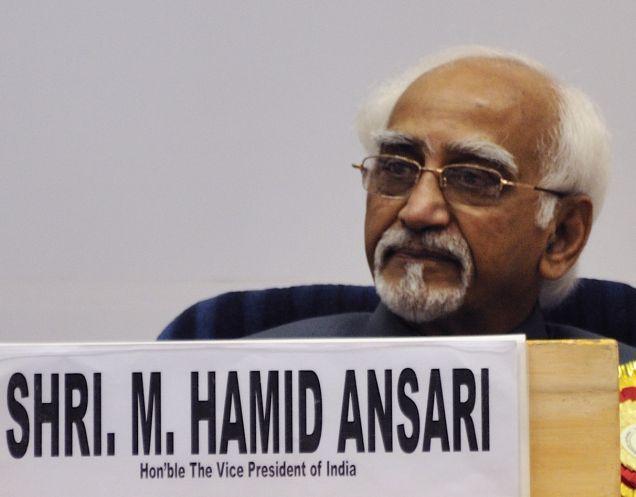
New Delhi, June 23: Vice President Hamid Ansari -- who was a strong contender for the UPA’s presidential candidate, as West Bengal chief minister Mamata Bannerjee revealed after she met Congress President Sonia Gandhi – may be offered a second term in his current job. A few days ago, Congress general secretary Digvijaya Singh, responding to a question in a TV interview on the possibility of a second term for Mr Ansari as VP, said, “It’s not a bad idea. Mr Ansari has conducted himself admirably as vice-president.”
Indeed, what Mr Singh said publicly is being said privately in Congress circles: one party source even pointed out that of the last 11 VPs, six became President; of the remaining five, Krishan Kant died in office, BD Jatti and B.S. Shekhawat ended their vice presidential tenures when the party/coalition that had elected them as VPs were no longer in power, while G S Pathak and M Hidayatullah completed their terms when there was no vacancy in Rashtrapati Bhawan as two Presidents, Dr Zakir Hussain and Fakhruddin Ali Ahmed died in office. There is also a historical precedent for a vice president getting a second tenure: S Radhakrishnan was VP for two terms, before he became the country’s second President. It is against this backdrop that Mr Ansari’s supporters in the Congress are making a case for a second tenure as VP for him.
Of course, with Mr Ansari having lost the Presidential nomination, other Muslim names have surfaced for the VP’s job – the Congress’ Mohsina Kidwai and K Rehman Khan and the National Conference’ Saifuddin Soz. Finally, those who feel a counter is needed to former Speaker Purno Sangma emerging as the opposition’s presidential candidate have put forward the name of former Nagaland chief minister SC Jamir.
Early on in the negotiations that preceded the selection of its presidential candidate, when the UPA was still unsure of mustering the numbers for its nominee for Rashtrapati Bhawan, there was talk of the possibility of a quid pro quo with the National Democratic Alliance: in that context, Shiromani Akali Dal supremo P.S. Badal’s name was taken, and the BJP’s Jaswant Singh made a bid for the job.
But with that stage over, the Congress, a senior party functionary said, is determined to keep the VP’s job within the UPA. Those who have signed up to back Mr Pranab Mukherjee for President – the UPA with or without the Trinamool Congress, the Samajwadi Party, the Bahujan Samaj Party, the CPI(M), the Forward Bloc and the Janata Dal- United – will also play a role in who will be the next VP.





Comments
Add new comment